Phones are essential to people for all sorts of reasons, but even the best Android phone pretty much worthless if it has no juice. This is why having multiple ways to keep your phone going is helpful, and knowing how to charge your phone using solar power gives you even more freedom. A typical way to power these slabs of technology is by plugging them into a fast USB-C wall charger at your home or office, possibly with an excellent battery pack that was charged the same way. However, even this option fails if the power is out or you're away from an outlet.
Putting the sun to work
There are alternative ways to get power to your phone cleanly and away from the electrical grid. One of those options is to use the power of the sun, and it couldn't be easier. There are ways of powering your entire home with solar, but it can be costly, and you may not own your home, which can make installing solar panels on it out of the question.
So, instead of using solar for everything you own with a plug, let's look at a couple of easy and much less expensive your phone. It doesn't matter whether you use something like the high-powered Samsung Galaxy S21 Ultra or a more environmentally conscious phone like the Teracube 2e, we've got you covered.
Solar in your pocket
First off is to use a portable battery pack that comes with a built-in solar panel, or in the case of my personal favorite, panels. I have a FEELLE 24000 mAh solar power bank that has been a stalwart in my travel bag, whether I'm hiking in the mountains or hanging out in the backyard. There are a lot of benefits of a battery pack that can be recharged using the sun. Because modern phones have large batteries, using a high-capacity battery pack means you'll have multiple recharges for your phone, even when the sun is hiding.
See, charging via solar is great, but it isn't the fastest way to get your phone's battery topped off. Because most compact-sized solar panels are small and can only catch so much sun, the output it can be capable of is also small. While many solar battery packs have one panel, the pack from FEELLE has three that fold out to gather more sunlight.
Letting a quality battery pack kick out higher wattage to your phone so you can get back to using it is great. Then the sun can slowly top off your battery pack while you aren't using it.
Power from the sun
The other option for solar charging is to use a setup designed for outputting higher power levels specifically to charge your phone. As mentioned above, to catch more rays from the sun, you need more surface area. Something like the BigBlue 28W solar charger will catch plenty of sunshine with its larger panels.
However, because the panels are slightly bigger, you won't be putting it into your pocket or even a small backpack. Something else to keep in mind with chargers like the BigBlue is that these setups don't come with a battery. Instead, you get a large panel for a higher output while in use. So if there's no sunlight, you won't be charging anything. It can still keep your device topped off while letting your backup battery stay full for times when the sun isn't out.
The FEELLE solar battery pack and the BigBlue are both water and shock-resistant, designed to be on adventures outdoors. With the FEELLE, you also get a built-in LED flashlight to go along with the massive battery pack. Each of these chargers also has multiple USB ports for charging more than one device at a time.
Tag team for the win
So, while the BigBlue solar panels don't offer a built-in battery and the Anker Powerhouse II 400 isn't solar — the two can work together.
By pairing up the solar panels and the Powerhouse, you can utilize the sun to help keep the massive battery pack charged when it's not in use. When you are taking advantage of all of the output options, the BigBlue solar panels can offer some juice back into the unit. With three USB-A, one USB-C, a 12V DC car socket, and an AC outlet, you can power most anything while being off the grid.
I say almost anything because while 300W max output is a lot, you aren't going to power a fridge with it. However, lights, fans, TV, and more can take advantage of the Powerhouse II 400's pure sine wave output. Another great reason to keep this battery backup charged is to take advantage of the built-in flashlight and lamp for illuminating larger areas. It's even better when you can top up your Powerhouse using the ultimate powerhouse — the sun.
So whether you are looking for a way to cut back on your usage of the electrical grid to save some cash or find a small way to help the environment, consider using solar to recharge your phone the next time you're ready to plug it in.
Soak it up
FEELLE Solar Power Bank
Save it for later
Equipped with three fold-out solar panels, an LED light, and two USB ports, the 24,000 mAh battery pack is ready to charge you up anywhere your adventures take you. Between the water-resistance and its ability to power up via the sun, you are free to roam.
Go big
BigBlue 28W Solar Charger
Harness the sun
BigBlue's 28W 5V solar panel is designed to charge up to three phones at once with its triple USB port setup. While it doesn't have a battery to store energy, the larger-sized water-resistant panels will be able to generate enough juice to keep your devices powered up while the sun's up.
Charge all the things
Anker Powerhouse II 400
$400 at Amazon $395 at Walmart $399 at Newegg
Power to spare
Offering up to 300W of pure sine wave power output, along with multiple outlets, you can keep almost anything electrified with the Anker Powerhouse II 400. You'll also stay out of the dark with the built-in LED flashlight and lamp. When charging the Powerhouse using solar panels, it doesn't get much better.


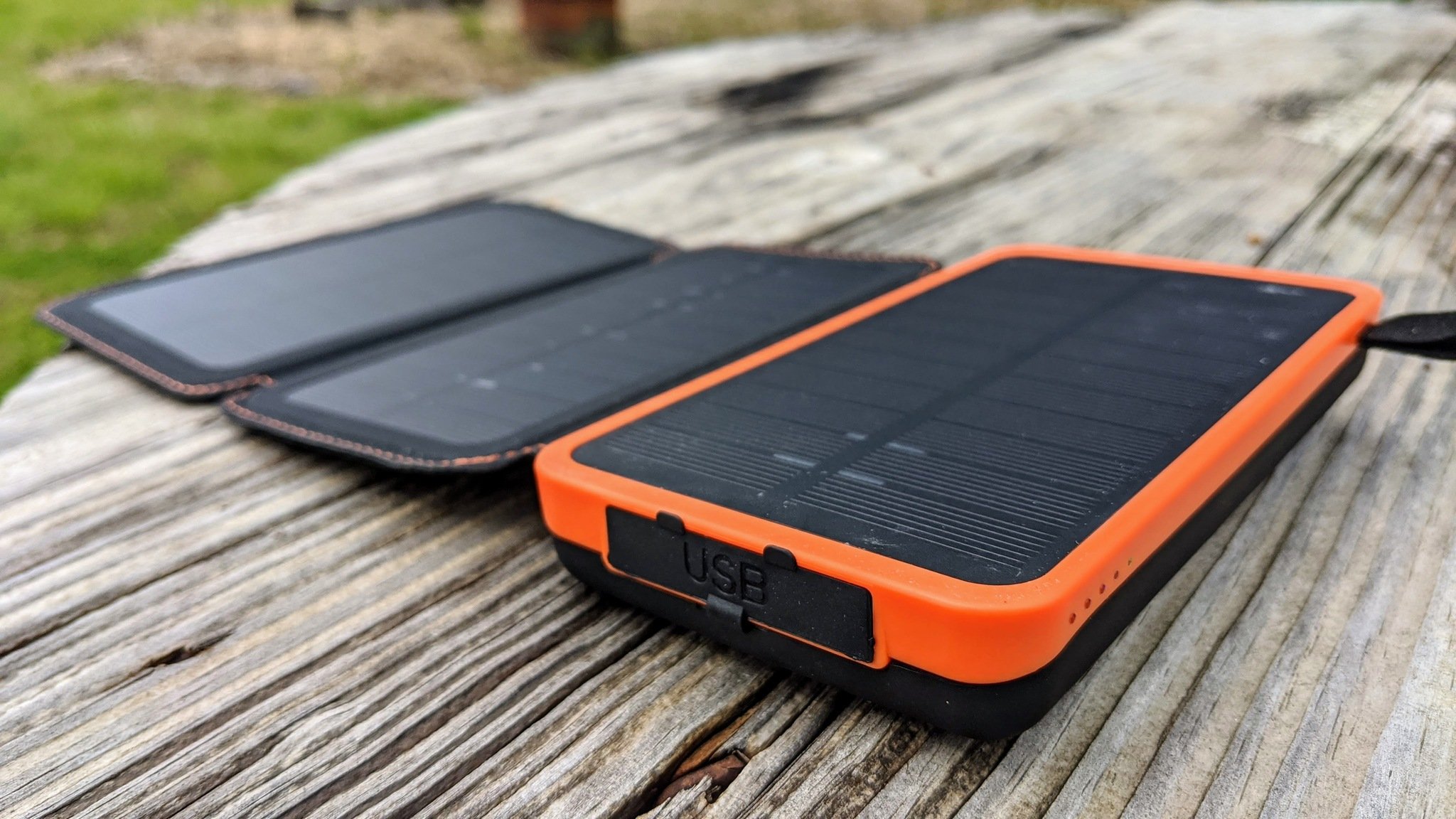
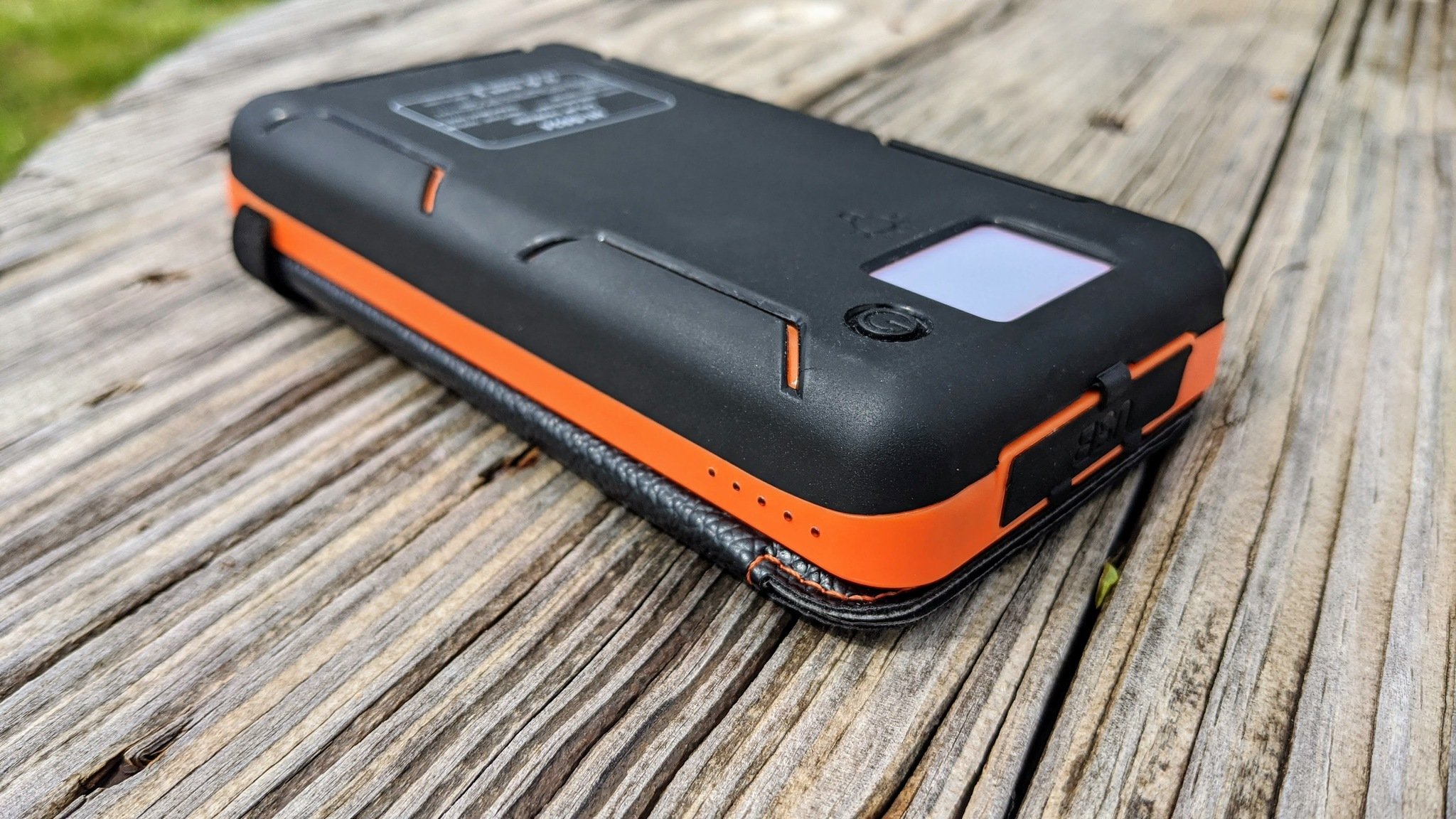
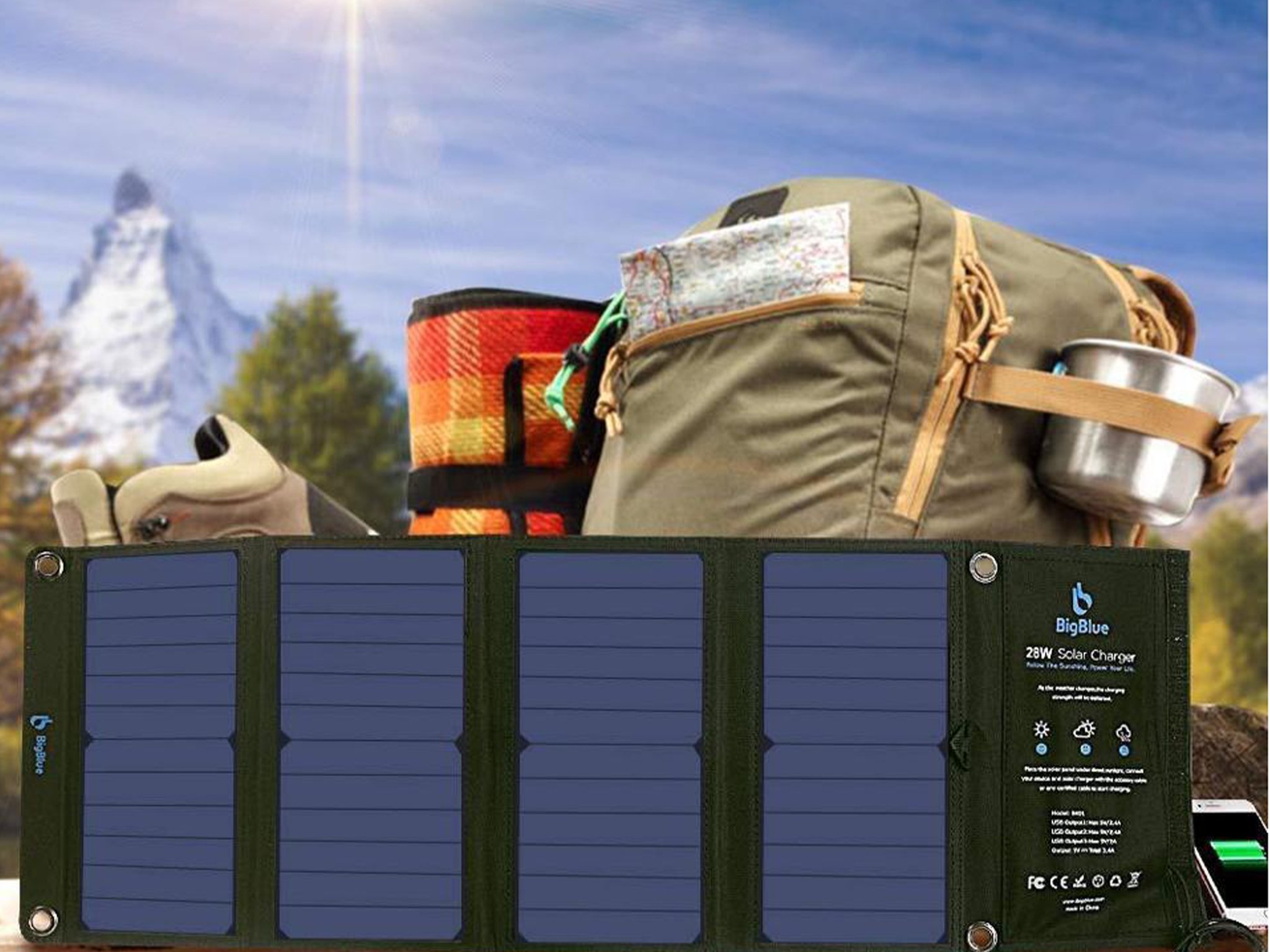
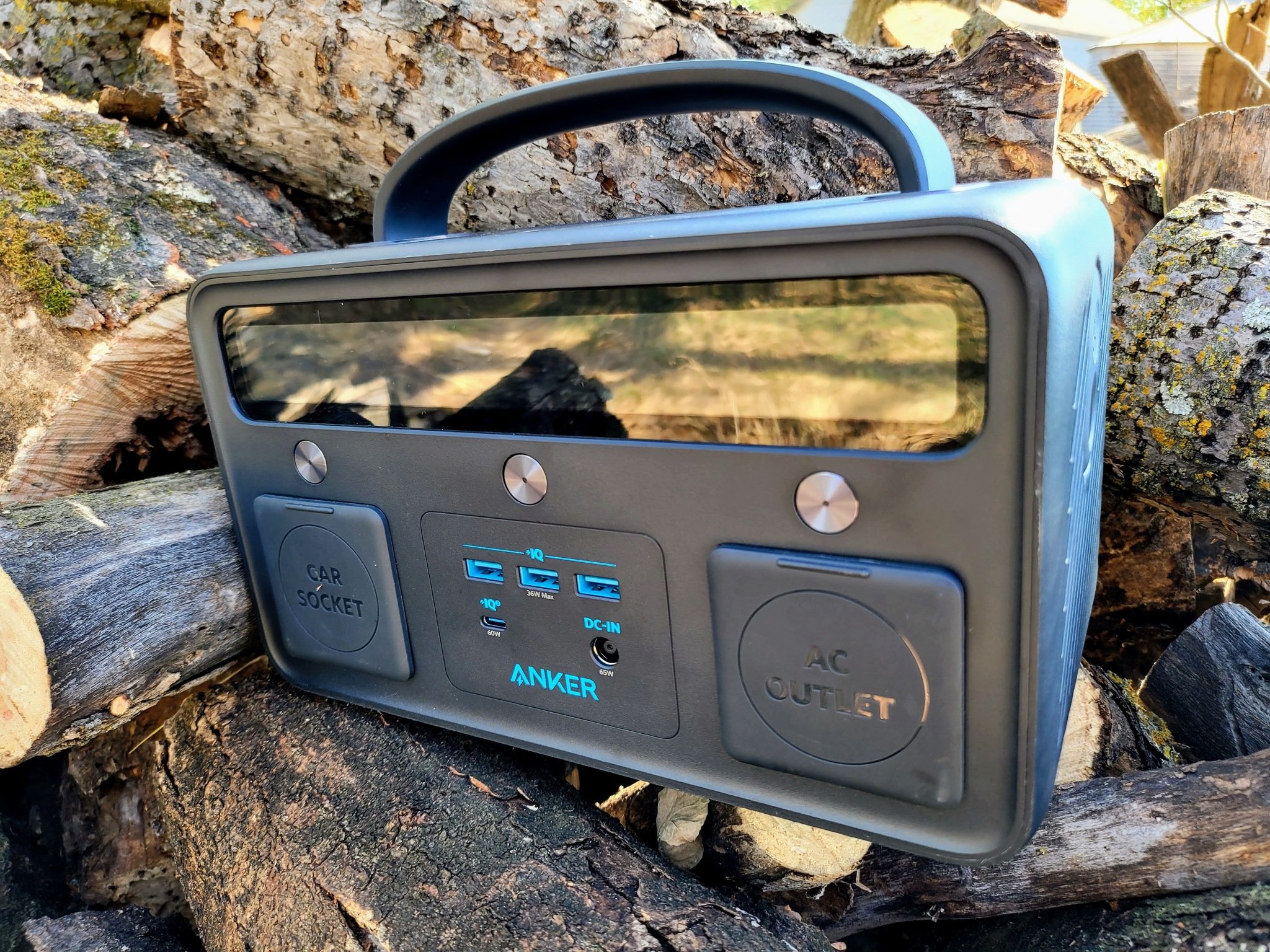
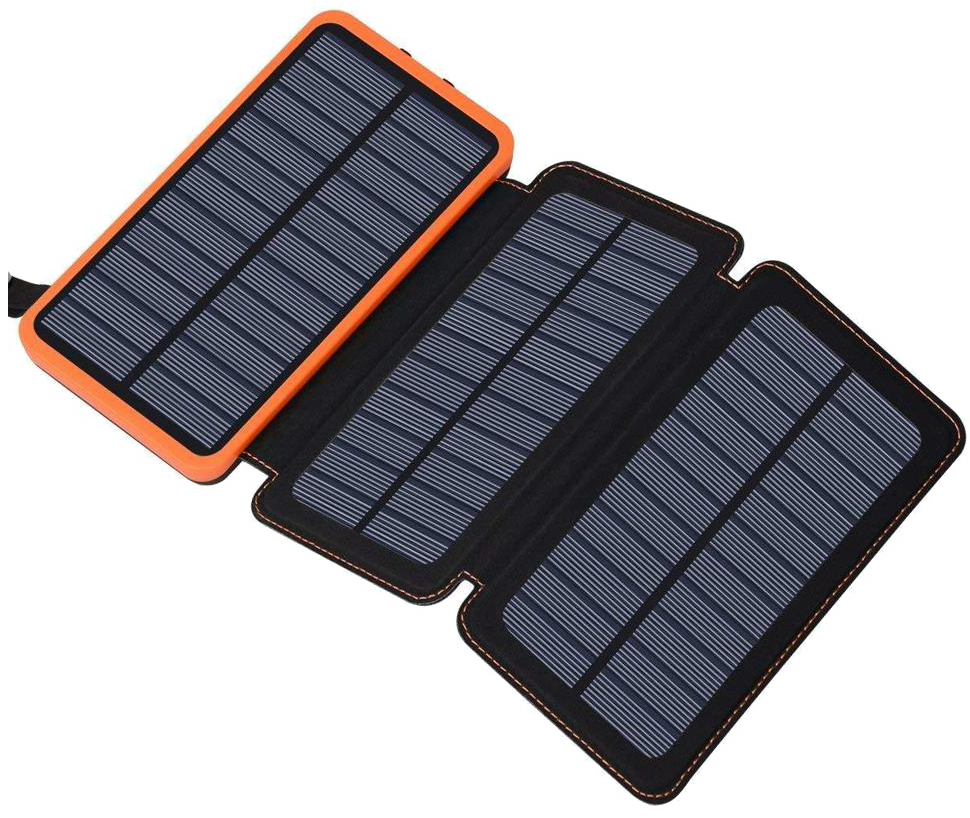
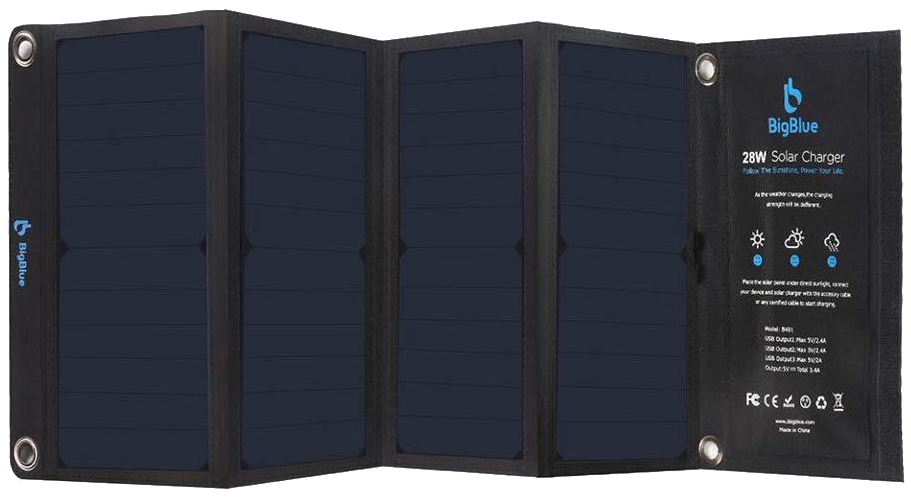
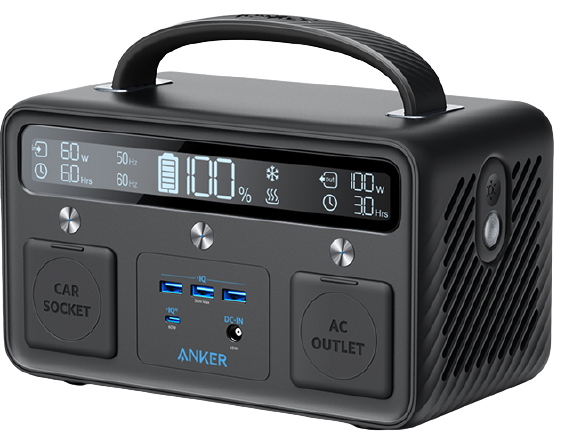
0 Commentaires